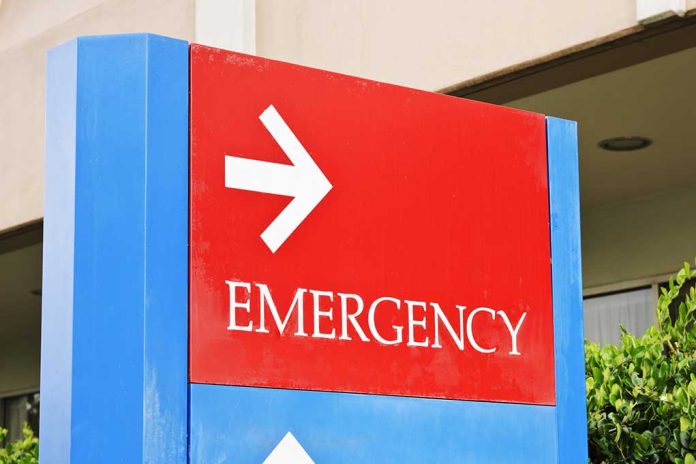
Pregnant women across the United States are facing a dire healthcare crisis as hospitals increasingly deny emergency medical services, even in severe conditions, violating federal law and putting lives at risk.
At a glance:
- Denials of emergency care for pregnant women spiked after Roe v. Wade was overturned
- Federal law mandates emergency rooms treat patients in active labor
- Hospitals face fines and loss of Medicare funding for violations
- The crisis disproportionately affects Black and low-income women
- Surge in Emergency Care Denials Post-Roe
Why is this happening? A myriad amount of legislation has been coming out of the states since the overturning of Roe v. Wade in June 2022. Not all of the states have included a provision for pregnant women who need emergency medical care that may result in an abortion. The ensuing confusion has led to a significant increase in pregnant women being turned away from emergency rooms across the United States.
This alarming trend is in direct violation of the Emergency Medical Treatment and Labor Act (EMTALA), which requires hospitals to provide necessary treatment for emergency medical conditions, including those related to pregnancy.
EMTALA Requirements and Violations
EMTALA requires emergency physicians to provide stabilizing treatment for emergency medical conditions, which can include emergency abortion care. However, federal investigators have found multiple violations of this law, with hospitals often turning away pregnant patients due to fear and confusion among emergency staff in states with strict abortion laws.
We asked the Biden administration to take action because we believe these hospitals violated EMTALA (the Emergency Medical Treatment & Active Labor Act), a longstanding federal protection enacted to ensure that no person is turned away from receiving the emergency care they need.
— National Women's Law Center (@nwlc) May 1, 2023
Legal Challenges and State-Federal Conflicts
Case in point. The Biden administration has sued Idaho over its abortion ban, arguing it conflicts with federal law. This case highlights the ongoing tension between state abortion bans and federal emergency care requirements. At the state level, in its abortion laws, the distinction between medical intervention in a medical crisis and a voluntary abortion must be made clear. Lack of distinction between the two creates excruciating confusion from medical providers and endangers women who are in the middle of a medical crisis and need help.
The Supremacy Clause of the U.S. Constitution dictates that federal law preempts conflicting state laws, but federal courts have issued conflicting rulings on this matter.
“The Biden administration has no business rewriting federal law to override Idaho’s law and force doctors to perform abortions,” Idaho Attorney General Raúl Labrador said in a statement earlier this year.
Impact on Maternal Health
The denial of emergency services is having severe consequences on maternal health. In states like Louisiana, where abortion bans are in effect, routine prenatal care is being delayed, and treatment for miscarriage and ectopic pregnancy is being postponed, leading to increased health risks. Seriously ill patients are being denied abortions until their lives are at irrefutable risk, exacerbating existing maternal health disparities.
“We were stunned by just how much regular medical practice for pregnant people has been disrupted,” said Michele Heisler, the medical director of Physicians for Human Rights and one of the report’s authors.
Ongoing Investigations and Penalties
The Centers for Medicare and Medicaid Services (CMS) has announced investigations into hospitals that have failed to provide necessary stabilizing treatment to pregnant individuals experiencing emergency medical conditions. These investigations are the first of their kind acknowledged by CMS and highlight the impact of changing abortion laws post-Roe v. Wade. Hospitals and physicians face significant penalties for EMTALA violations, including fines and potential loss of Medicare funding.
Future Implications
The outcome of ongoing legal challenges will significantly impact the future of emergency medical care and abortion laws in the United States. As the crisis continues to unfold, it is clear that urgent action is needed to protect the rights and health of pregnant women seeking emergency care.






















